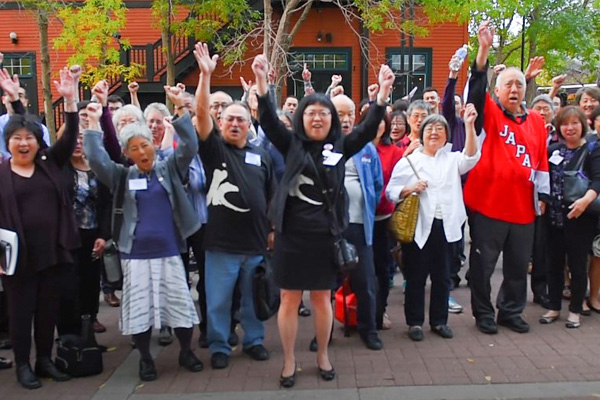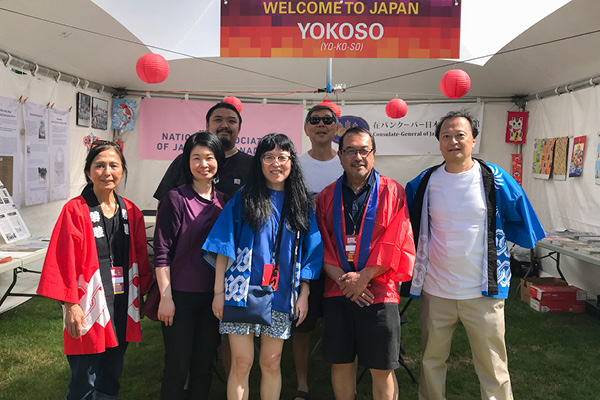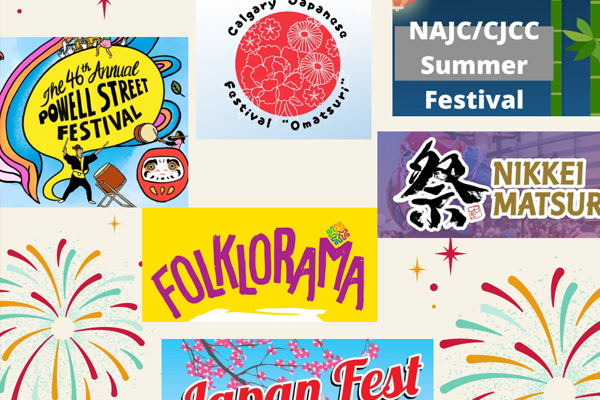by Lorene Oikawa
75 years ago, Japanese Canadians received a decision on a legal challenge that went all the way to the Privy Council in the United Kingdom. In the case of the government’s exile orders to force Canadians of Japanese ethnicity to Japan, Privy Council sided with Parliament. In the New Canadian newspaper, the response was unyielding, “We must continue the fight because we believe in the justice of our cause, and because we firmly believe that there is in Canada a thing called democracy.”
Unchecked, the government stripped Japanese Canadians of their rights and freedoms. Almost 80 years ago, the massive uprooting of Japanese Canadians started on February 26, 1942. Some were only given 24 hours’ notice. On March 4, 1942, JCs were ordered to turn over all property and belongings to the Custodian of Enemy Alien Property. Order-in-Council P.C. 1665 was passed and this legislated theft was called a protective measure. On March 16, 1942, the first of the nearly 8,000 Japanese Canadians arrived at Hastings Park in Vancouver. They are held there, sometimes for months like the maternal side of my family, before being shipped further. Further injustices would continue and it wasn’t until 1949, four years after World War II ended, that Japanese Canadians could return to the west coast of BC. But everything was taken away from them and there were no homes to return to.
In the midst of this timeline review, let us remember March 21 is the International Day for the Elimination of Racial Discrimination. The origin of this day is when 69 people were killed by the police at a peaceful demonstration against apartheid “pass laws” in 1960 in Sharpeville, South Africa. A different community under attack, but motivated by hate for people based on their ethnicity. Unfortunately the hate hasn’t gone away. We have seen hate incidents explode during the pandemic. The Vancouver Police Department reported a 97% increase in hate incidents and a 717% increase in anti-Asian hate incidents from 2019 to 2020. The hate manifests in the rhetoric of white supremacists and their groups, in the long established systemic racism in society, and targeted attacks against Indigenous, and racialized individuals and organizations.
There isn’t a simple answer to eliminate racial discrimination. It takes all of us, individuals, groups, organizations, businesses, unions, schools, media, and government to take action. One important piece is education, sharing of our stories, and building inclusivity. Too often, Indigenous stories including pre-colonial ones and racialized stories are not a part of Canadian history. We are seen as the “others” and not belonging. Being a yonsei, fourth generation Canadian, doesn’t prevent me from being questioned, “Where are you really from?”
The NAJC continues our work including sharing stories and having important discussions through our online programming which has greatly expanded since the pandemic. Until we can safely gather in person, join us online. najc.ca/online-programs. For news and updates, subscribe to NAJC e-news at najc.ca/subscribe.
Three of our upcoming events:
NAJC Human Rights Committee presents Remembering Gordon Hirabayashi, Recipient of the Presidential Medal of Freedom. The 90 minute online tribute is on Thursday, March 25, 2021. 4:30pm PT | 5:30pm MT | 6:30pm CT | 7:30pm ET. Register. More information about the tribute can be found here. Read about the NAJC Dr. Gordon Hirabayashi Human Rights Award.
NAJC ACE Committee presents 90-minute moderated conversations, readings and Q&As with two outstanding Japanese Canadians who will be talking about their books.
Join Terry Watada on Saturday, March 13 at 1pm PT | 2pm MT 3pm CT | 4pm ET. His latest novel, Mysterious Dreams of the Dead, completes a cycle of novels that speaks to the Japanese Canadian experience, as seen from multiple perspectives. He has also released his fifth book of poetry, The Four Sufferings. Register. For more information go to najc.ca/online-programs.
Join Grace Eiko Thomson on Saturday March 27 at 1pm PT | 2pm MT | 3pm CT | 4pm ET. Her book, Chiura Sakura, includes parts of her mother’s translated memoir and her reflection on her mother’s words. Register. For more information go to najc.ca/online-programs.
Besides featuring talented members of our Japanese Canadian community in events, we also support the development of creative works, projects, and individuals. One of the ways we provide support is through the NAJC Endowment Fund. The purpose of the NAJC Endowment Fund is to enhance the development of the Japanese Canadian community. There is funding available under two programs, Cultural Development and Sports, Education, and Arts Development. The deadline for applications is June 30, 2021. Eligibility and application information is on the NAJC website. A question & answer session for potential applicants will be set up this month and we will provide a Frequently Asked Questions (FAQ) resource.
Some of you may remember my work with the City of Surrey and the Discovering the Stories of Japanese Canadians in Surrey event. I am excited to let you know that the Surrey Heritage Interpretation Program is planning on installing a new heritage marker in Bear Creek Park, located in the Newton neighbourhood of Surrey. Surrey is a city within the Metro Vancouver area. The marker will take the form of a regional map with family names printed on their historical property lots – a snapshot of residents of the area in 1940. They have been reviewing archival resources, but it’s important that we review the information to ensure the Japanese Canadian names on the heritage marker are accurate and complete. Surrey Heritage is looking for any assistance to confirm and correct the information. They would also be interested in anyone who may have stories or any other information to share. Their list of names include Hirasawa, Mijazaki, Ota, Shinmoto, Shinohara, Hori, Inouye, Kawazoi, Ono, Yasui, Imahashi, Nakamura, Minto, Shigeta, Hashida, Kimura, Morioka, Okazaki, Nishioka, Fukushima, and Hinatsu. The associated addresses and map are posted on the NAJC website najc.ca/japanese-canadian-residents-in-1940-surrey. Please provide your feedback as soon as possible, because the signage is being planned for early summer 2021. Thank you for your help.
The final word goes to a call out to support our Japanese Canadian media. If you make a donation to Nikkei Voice’s 2021 fundraising campaign now, it will be matched, dollar-for-dollar, up to $10,000. Go to www.nikkeivoice.ca/donate. Information for subscribing or donating to The Bulletin is in this magazine or go to jccabulletin-geppo.ca/membership. We encourage everyone to give whatever they can. Your help will ensure we continue to have these important forums to share the news, histories, and opinions of Japanese Canadians.
Stay safe and thank you for all you do, from the National Executive Board of the National Association of Japanese Canadians.



